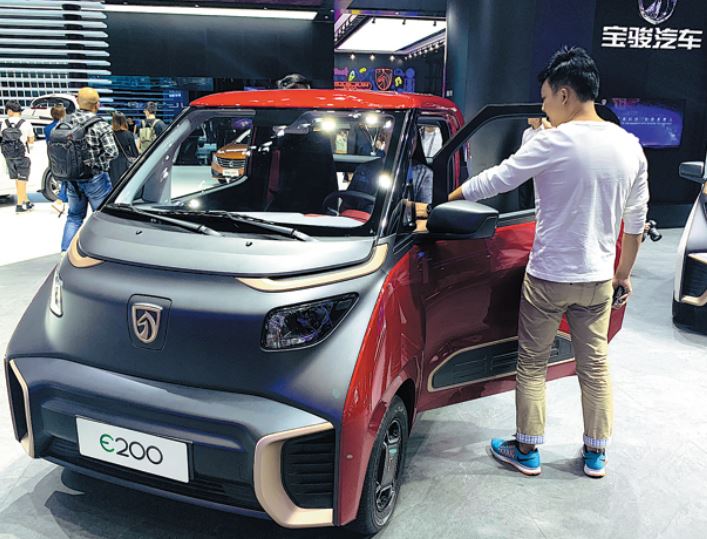Electric cars to take center stage of China's NEV program: official


Song said players should not rest on laurels because there are still many challenges.
"Our electric cars are not as good as gasoline vehicles. We have too much capacity for low-end products and too little capacity for high-quality ones," she said.
Song also warned of the risk of overreliance on international companies for critical chips and electric motor controllers, saying the supply chain may break as the anti-globalization trend rages.
The number of charging poles in China, though having risen, is not enough. There is an average of about 3.3 electric vehicles for each pole.
Song called for local authorities to give more financial stimuli to building charging infrastructure instead of car purchases, and to encourage private investors to join the effort.
Luo Junjie, a deputy department chief at the Ministry of Industry and Information Technology, said the ministry is coordinating the compilation of a development plan for the industry from 2021 to 2025 as part of the government's effort to consolidate its momentum.
In a speech delivered at the same forum, he said one focus of the plan is to cut energy consumption through introducing different technologies, including fuel cell vehicles.
As the country plans a withdrawal of financial stimuli, it is important to bring into play the role of the market to stimulate carmakers' innovation, Luo said.
China began offering subsidies in 2009, with tens of billions of yuan having been spent over the past decade. The subsidies are to stop altogether by the end of 2020.
Cai Tuanjie, a deputy department chief at the Ministry of Transport, said the market should have a larger say in developing new energy vehicles. "Electric vehicles, hybrids and fuel cell vehicles all have their own merits. "I think local authorities should choose what they want based on their actual conditions," said Cai at the same forum.
He suggested the trials and errors China has seen in developing the electric vehicle segment can offer a lesson for growing the fuel cell vehicle industry.
"We should establish pilot projects, make concerted efforts to seek technological breakthroughs, choose the right path, and establish a market-oriented system with carmakers as the major players," he said.
China has set a plan to sell 1 million fuel cell vehicles by 2030.




































